Are you looking to confirm your professional accreditation with a polished letter? Crafting the perfect letter can be crucial in ensuring that your qualifications are recognized and understood. In this article, we'll guide you through the essential components of a confirmation letter, making the process straightforward and stress-free. So, if you're ready to take a confident step towards securing your professional credibility, keep reading!

Accreditation details and authority
The accreditation process for educational institutions, such as universities, is conducted by recognized authorities like the Council for Higher Education Accreditation (CHEA) in the United States. Accreditation ensures that institutions meet specific quality standards set by these authorities, thereby validating the educational programs offered. Professional accreditation typically focuses on programs in fields such as engineering, nursing, and architecture, which require adherence to discipline-specific standards. Organizations like the Accreditation Board for Engineering and Technology (ABET) or the Commission on Collegiate Nursing Education (CCNE) evaluate and confirm that these programs equip students with the necessary competencies and knowledge to succeed in their professions. Achieving accreditation signifies that an institution is committed to continuous improvement and accountability in providing quality education, contributing to the overall credibility of its academic offerings.
Recipient's personal and professional information
Professional accreditation confirmation involves validating the qualifications and standards of an individual in a specific field. The recipient may hold a designation such as Certified Public Accountant (CPA) or Project Management Professional (PMP), and their professional background often includes a relevant degree from an accredited institution and years of practical experience in their industry. Personal information might include the recipient's full name, professional title, and contact details, including email and phone number. The confirmation process is typically formalized through an official letter issued by the certifying body, detailing the accredited status, the date of accreditation, and any specific conditions or continuing education requirements that must be met to maintain this qualification. The significance of this accreditation lies in its ability to enhance credibility, showcasing expertise and commitment to professionalism in fields such as healthcare, finance, or engineering.
Validity and duration of accreditation
The professional accreditation granted to the organization, valid for three years, will remain effective until December 31, 2026. The accreditation is based on adherence to rigorous industry standards set by the Accreditation Council (AC), which evaluates compliance criteria such as educational quality, faculty qualifications, and resource availability. Regular reviews every 12 months ensure continuous improvement and alignment with evolving professional benchmarks. Upon expiry, renewal will depend on performance assessments conducted through site visits and documentation reviews to maintain the integrity and credibility of the accreditation process.
Conditions and obligations
Professional accreditation often includes certain conditions and obligations to uphold standards within a specific industry. Accreditation bodies, such as the International Accreditation Forum (IAF), establish criteria that professionals must meet to ensure quality and competence. These conditions may involve ongoing education, adherence to ethical guidelines, and compliance with industry regulations. Obligations could include regular reporting, participation in audits, and maintaining necessary certifications. Failure to meet these requirements may result in the loss of accreditation status, which can significantly impact professional credibility and career opportunities in competitive fields.
Contact information for further inquiries
The confirmation of professional accreditation serves as a vital document indicating that an individual or organization has met the established standards set by an accrediting body. This accreditation is often specific to fields such as healthcare, education, or engineering, ensuring compliance with industry protocols and best practices. For those seeking additional information or clarification regarding the accreditation process, contact details are typically provided, allowing stakeholders to reach out to the designated accreditation office or representative. This contact information usually includes a phone number, email address, and office location, facilitating communication for inquiries about the accreditation status, renewal processes, or further assistance related to accredited programs or professionals.
Letter Template For Confirmation Of Professional Accreditation Samples
Letter template of professional accreditation confirmation for educational institutions.
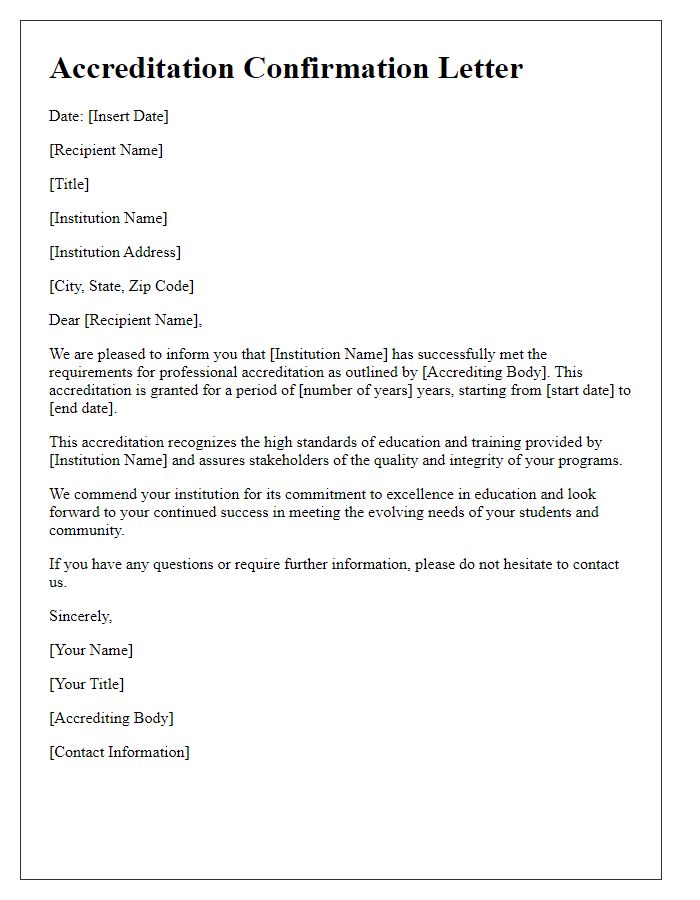
Letter template of professional accreditation confirmation for healthcare organizations.
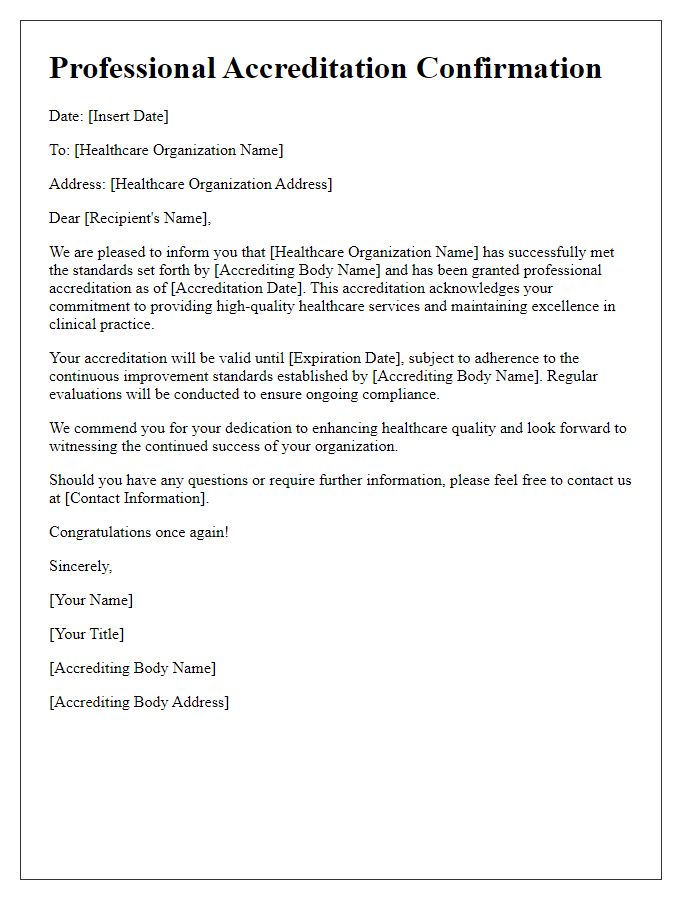
Letter template of professional accreditation confirmation for engineering firms.
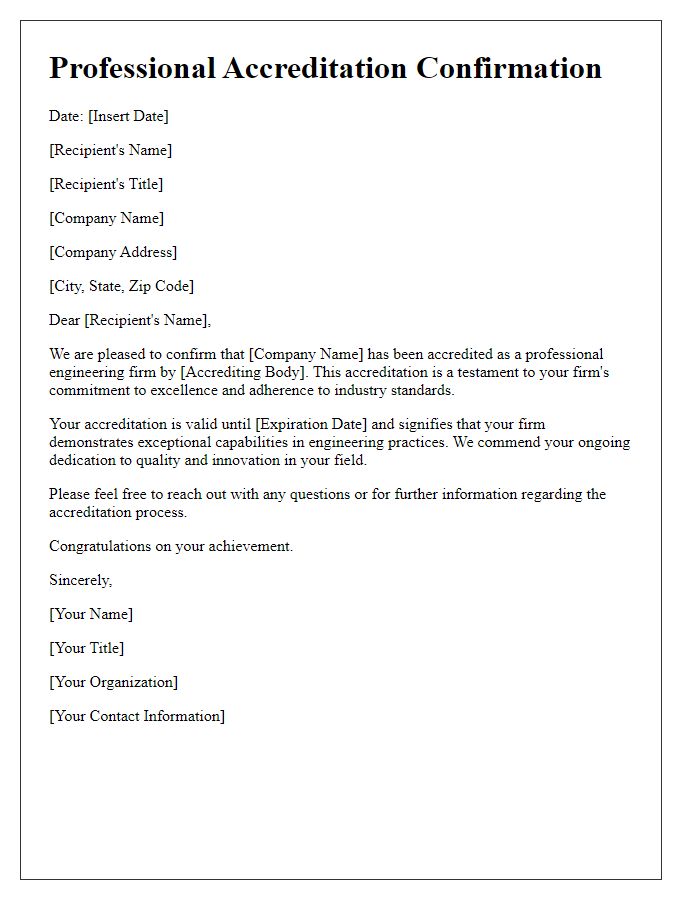
Letter template of professional accreditation confirmation for financial services.
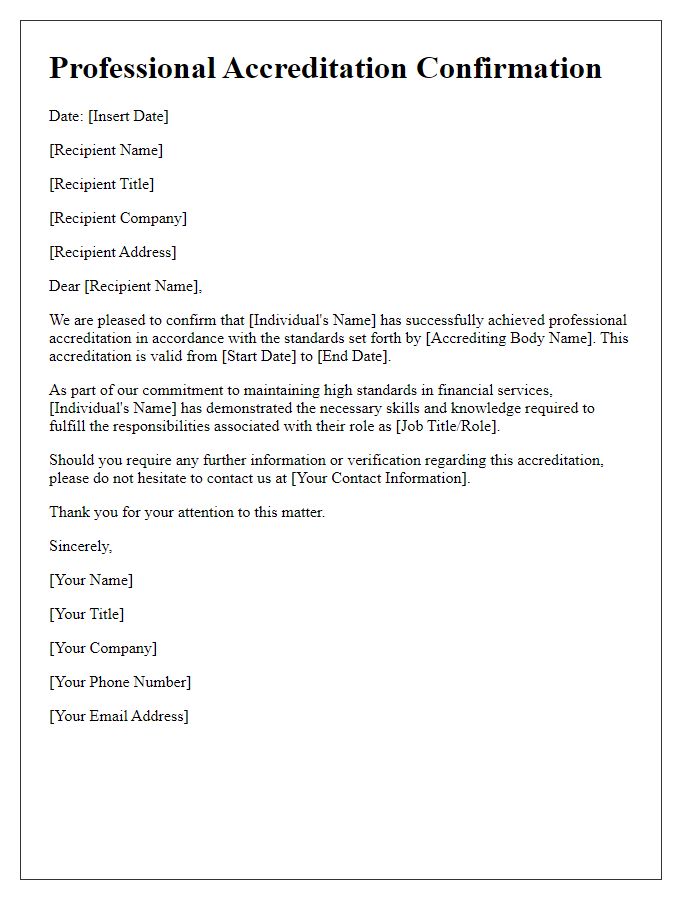
Letter template of professional accreditation confirmation for non-profit organizations.
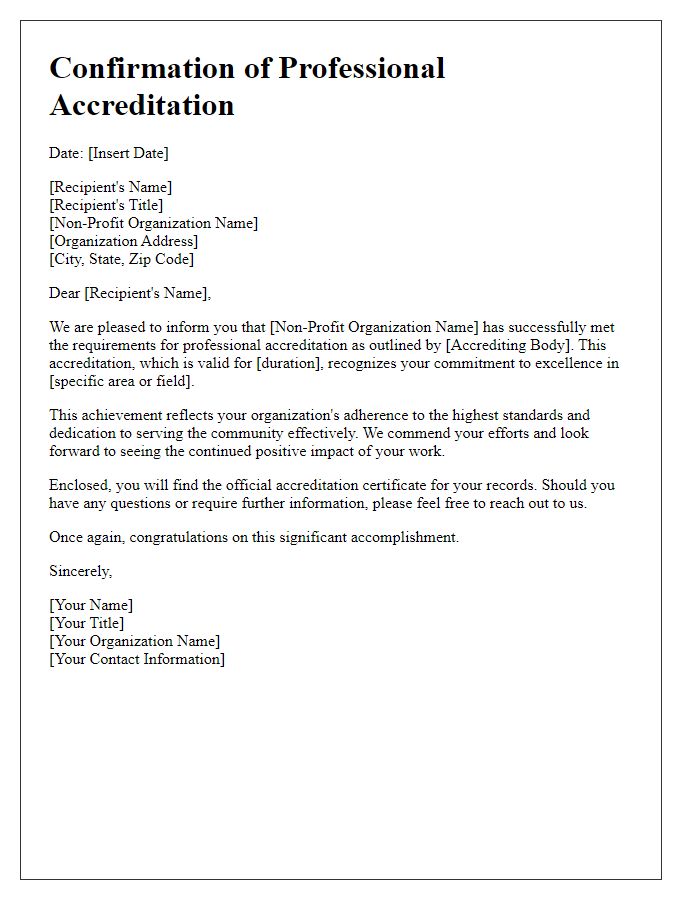
Letter template of professional accreditation confirmation for training programs.
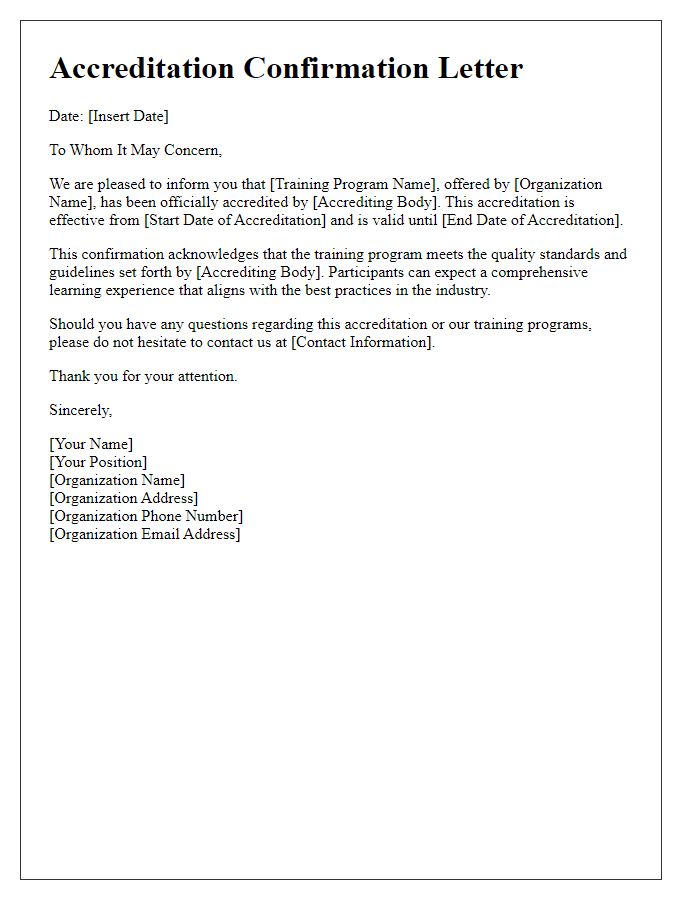
Letter template of professional accreditation confirmation for corporate entities.
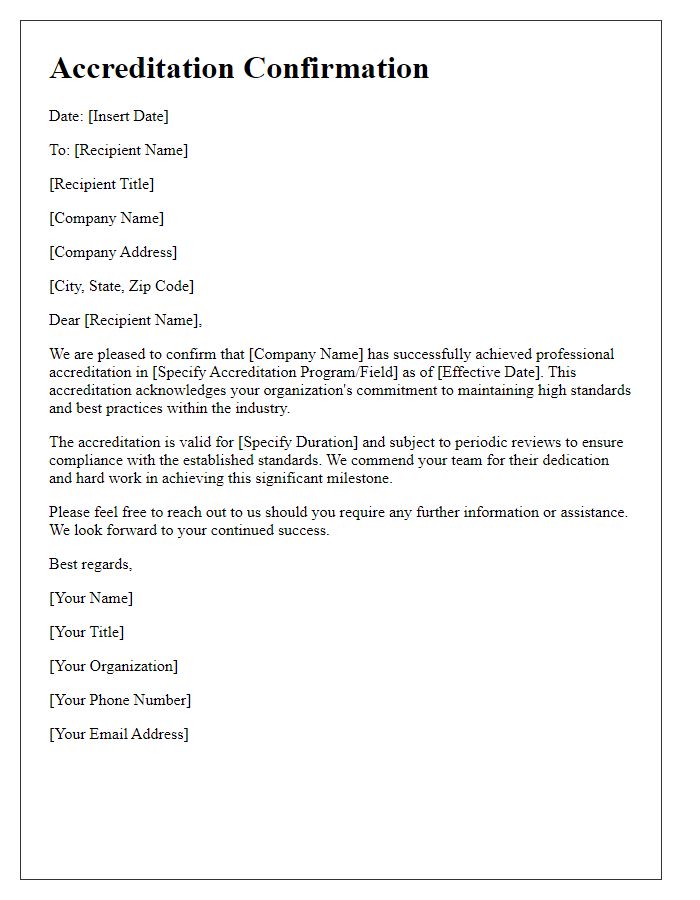
Letter template of professional accreditation confirmation for research institutions.
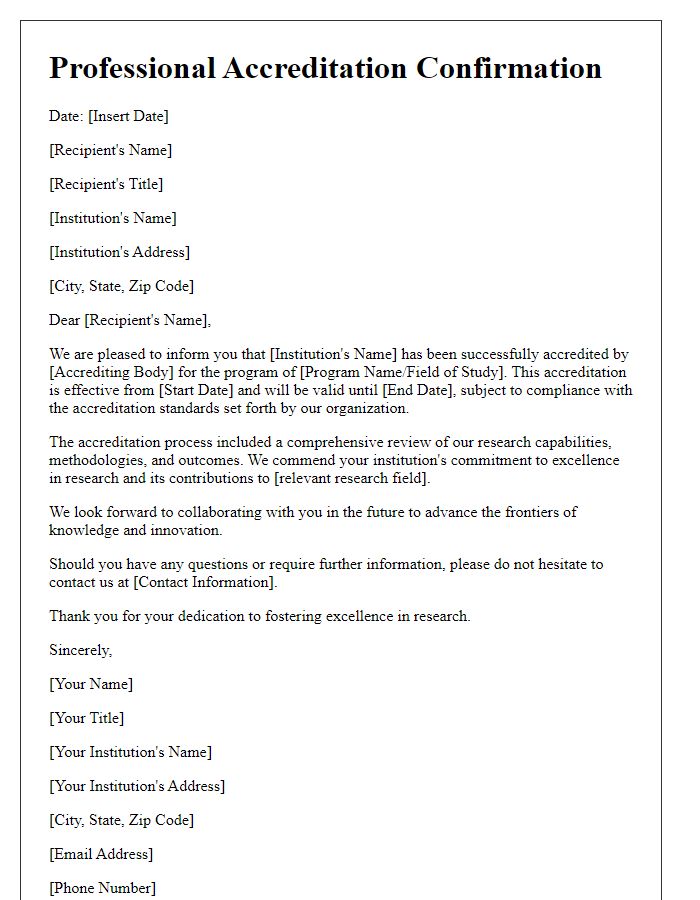
Letter template of professional accreditation confirmation for consultancy services.
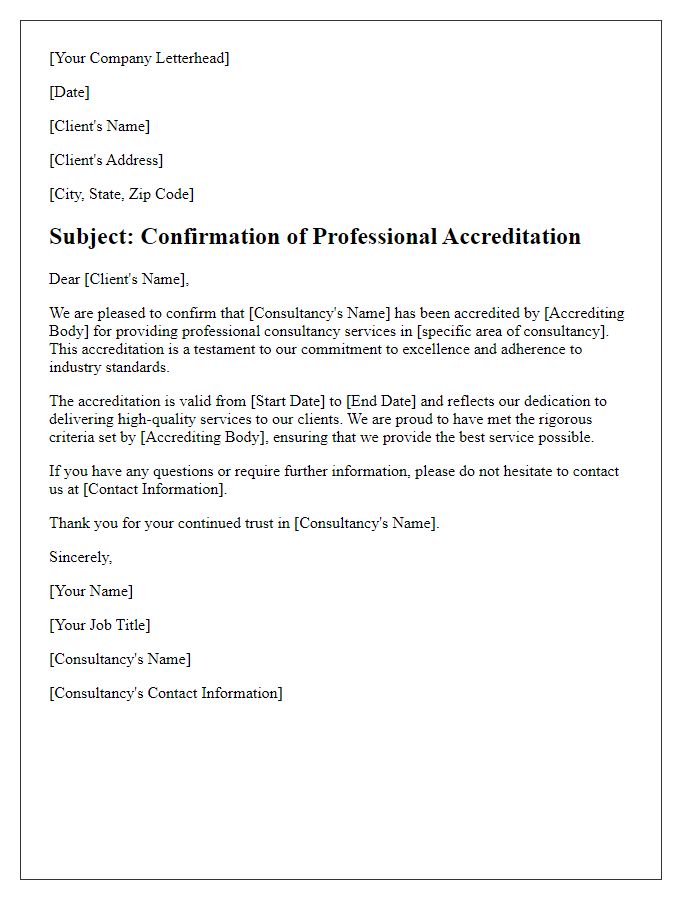

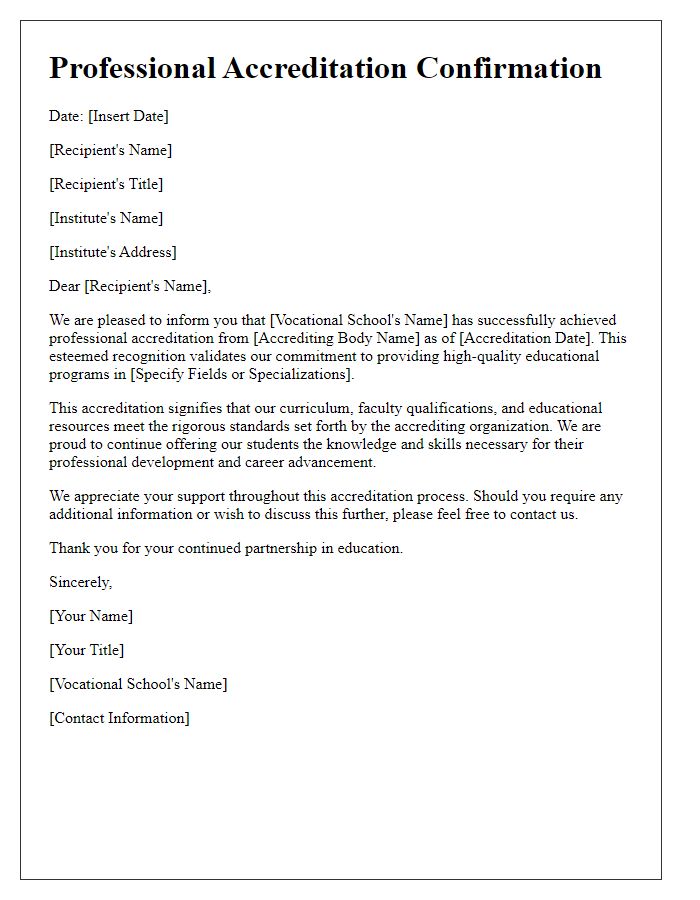


Comments